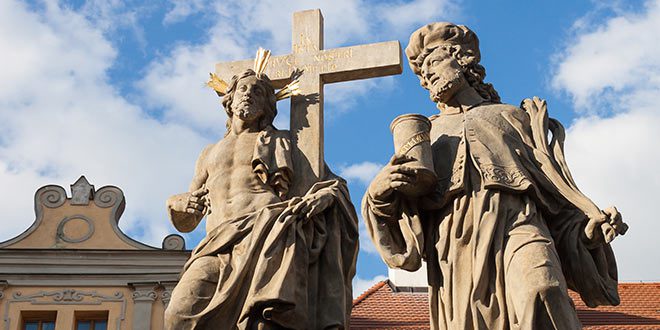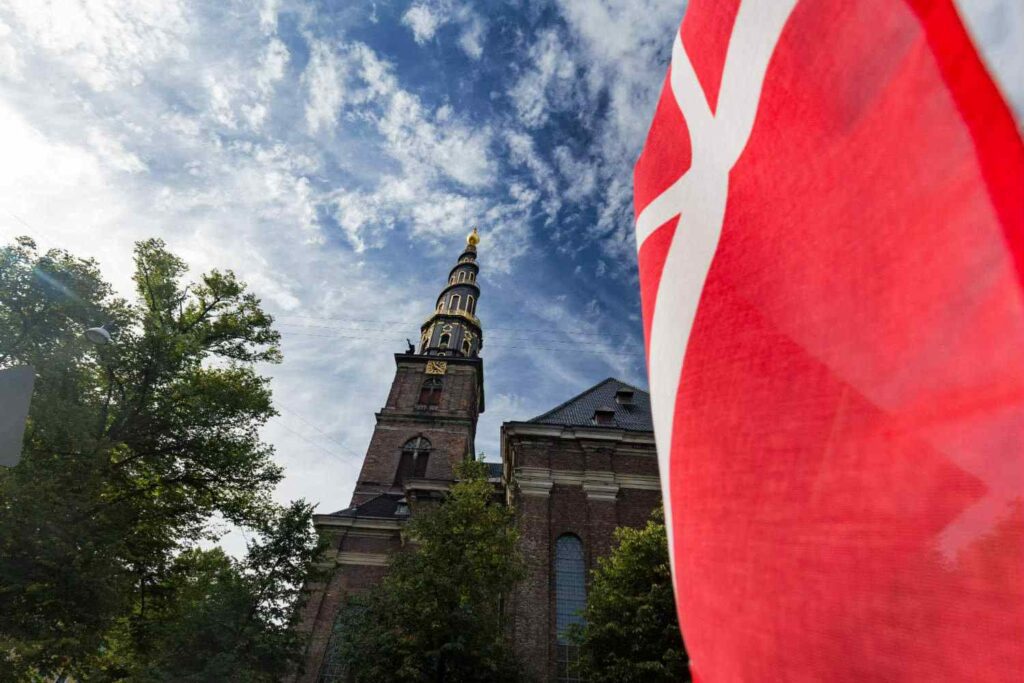Immanuel Kant defines religion as the recognition of all of our duties as divine commands. The whole world has different points when it comes to religion, but one thing is sure is that every one of us respects each other’s religion and as a human should be respected. In every country, there are many religions that are being practiced, you cannot guarantee that one country only has one religion, it would be a miracle to find one country that has only one religion practiced. Now, in this world where we respect each and every belief, there are many people that do not follow any religion, and that is okay.
Every country has at least one person who follows a religion, but some just simply do not abide by any religious practices, hence having their country on the list of countries that are least religious. If you are curious as to which countries are the least religious or those that don’t follow any religion, then you might want to dive deeper into this article.
Before we proceed to the list of countries, let us first define the people who make up this population of non-religious persons in the country. There are two classifications that we can definitely sort out. These are the atheist, and agnostic people.
An atheist is a person that doesn’t believe in God or the existence of divine beings. They do not worship or even pray. With that being said, they do not really follow any religions at all.
An agnostic is a person who neither believes nor disbelieves that there are divine beings. They are somehow people in the middle, they are like the people that they will only believe unless something is proven, something like that.
But, here in our article, the people that would make up most of the population in the country that does not follow any religion, would be the atheists. Now let’s take a look at the list of the countries that do not follow any religion or have the least practice of religion.
Countries that are the least religious in the world
#1. China
China is the most populated country, and it is said that most of the people don’t follow any religion, or do not do any religious practices, making the country at the top of countries who don’t follow any religion. According to some articles almost half of the percentage of Chinese people, are neither agnostic nor atheists and do not believe in their deities which are part of their culture. China is said to be trying to reduce the power of religious institutions all throughout the country.

There are many factors that contribute to why a significant number of Chinese people do not believe in God or religion. Here are a few possible reasons:
- Historical and cultural context: China has a long history of Confucianism, Taoism, and Buddhism, which have shaped the country’s culture and values. These belief systems do not necessarily require belief in a single deity or God, so people may not see the need to believe in one.
- Communist ideology: The Chinese Communist Party (CCP) came to power in 1949 and advocated atheism as part of its ideology. The CCP’s promotion of science, rationality, and materialism over superstition and religious beliefs has had a lasting impact on Chinese society.
- Lack of exposure: Some Chinese people may not have had much exposure to religion or religious ideas, especially if they grew up in urban areas or in families that were not religious.
- Personal beliefs: Some people may simply not be interested in or convinced by religious beliefs or practices, and may prefer to focus on other aspects of their lives.
It’s important to note that while a significant portion of Chinese people do not identify as religious, there are still many who do, including followers of Buddhism, Taoism, Christianity, and Islam. Religion continues to play an important role in many people’s lives in China, even as the country becomes more secular.
#2. Czech Republic
The weak support of the Czechs to the church system fanned all throughout the 19th and 20th centuries, making 30 to almost 40 percent of the Czech citizens atheist. Religions such as Catholicism were seen as an Austrian import and were not used and discouraged but the country.

The Czech Republic is known for having a relatively high proportion of people who do not believe in God or religion. There are several factors that may contribute to this:
- Historical context: The Czech Republic has a long history of religious conflict and suppression, including the suppression of the Hussite movement in the 15th century and the forced conversion of Czechs to Catholicism during the Habsburg rule in the 17th century. These experiences may have led to a general distrust of religion and religious institutions.
- Communist rule: The Czech Republic was under communist rule from 1948 to 1989, during which the government actively discouraged religious practices and promoted atheism.
- Education: The Czech Republic has a well-educated population, with a high literacy rate and a strong tradition of science and rationalism. This may contribute to a preference for evidence-based reasoning over religious belief.
- Personal beliefs: Some Czechs simply do not find religion compelling or relevant to their lives, and may prefer to focus on other aspects of their identity or community.
It’s worth noting that while a majority of Czechs do not identify as religious, there are still many who do, including followers of Catholicism, Protestantism, and other faiths. Religion continues to play a role in the country’s cultural heritage and identity, even as more people identify as non-religious.
#3. Japan
Same with the Czechs, 30 to almost percent of the Japanese people were deemed atheists. Religion in Japan is mostly centered on Shintoism which is like a ritual and kind of like a methodology that surrounds ancient Japan, but still some classify it as religious. Religion in Japan such as Buddhism has decreased in followers over the years, making the devotees less and less.

In Japan, a significant portion of the population does not identify with any particular religion, and many people do not believe in God or gods. There are several reasons why this may be the case:
- Shinto and Buddhism: The traditional religions of Japan are Shinto and Buddhism, which do not necessarily require belief in a single God or creator. Instead, these religions focus on ancestor worship, nature spirits, and other supernatural forces. Many Japanese people may not feel the need to believe in a personal God, especially if they have grown up with these other traditions.
- Modernization: Japan underwent a rapid modernization process in the 19th and 20th centuries, which led to a decline in traditional religious practices and beliefs. As Japan became more industrialized and urbanized, many people shifted their focus to material concerns and secular values.
- Education: Japan has a highly educated population, with a strong emphasis on science and technology. This may contribute to a preference for evidence-based reasoning over religious belief.
- Personal beliefs: Some Japanese people simply do not find religion compelling or relevant to their lives, and may prefer to focus on other aspects of their identity or community.
It’s important to note that while many Japanese people do not identify with a particular religion or belief in God, there are still many who do, including followers of Shinto, Buddhism, and other religions. Religion continues to play a role in Japanese culture and society, even as more people identify as non-religious.
You May Also Like These
#4. Sweden
Irreligion or not following any religion is very common in Sweden. Around 45 to almost 85 percent of Swedish people are possibly atheists or agnostics making the country decline some religions when it comes to religious practices.

There are several factors that contribute to the relatively high percentage of non-believers in Sweden. One of the most significant factors is the country’s history of secularism and religious freedom. Sweden has a long tradition of separating church and state, which has led to a society that places a high value on individual freedoms and personal choice.
Another factor is the country’s strong welfare state, which has led to a high degree of social equality and security. This has led to a decreased need for religion as a source of comfort and support for many Swedes.
Additionally, Sweden has a highly educated population, and education is strongly correlated with lower levels of religious belief. As a result, many Swedes may view religion as outdated or unnecessary in their lives.
It is also worth noting that while the majority of Swedes may not identify as religious, many still hold spiritual beliefs or engage in practices such as meditation or yoga.
#5. Australia
As the years go by more Australians have been identified as on-religious or person who does not have any religion. it is said that over 40 percent of the population of Australians do not follow any religion. People in New South Wales are reported to have the least religious or people who do not have any religion at all.

There are several factors that may contribute to a relatively high percentage of non-believers in Australia, including:
- Secular society: Like Sweden, Australia has a strong tradition of secularism and a separation of church and state. This means that religion does not play as prominent a role in public life as it does in some other countries.
- Education: Education is strongly correlated with lower levels of religious belief, and Australia has a relatively high level of education compared to many other countries.
- Diversity: Australia is a diverse country, with many different cultures and religions represented. This diversity can lead to a more tolerant and accepting society, and may also make it more difficult for any one religion to dominate.
- Science and rationality: Australia is a country that values science and rationality, and many Australians may view religion as incompatible with these values.
- Decline of traditional institutions: Like many countries, Australia has seen a decline in traditional institutions such as churches, and this may be reflected in lower levels of religious belief.
- Personal choice: Ultimately, many Australians may simply choose not to believe in God or follow any particular religion, as they value individual freedom and the right to make their own decisions about their beliefs.
You May Also Like These
#6. France
The country where the city of love stands is said to have at least 1/5 or one-fifth of the citizens considered to be atheists. Just like China, France is said to be reducing the power of religious institutions too within the country.

It is true that France has a high percentage of non-religious individuals compared to other countries. Here are some factors that may contribute to this trend:
- History: France has a long history of conflict between the Catholic Church and the state, which has led to a tradition of secularism and a separation of church and state. The French Revolution of 1789 further cemented these values and established the principle of laïcité (secularism) as a fundamental value of the French Republic.
- Education: The French education system emphasizes critical thinking and scientific reasoning, which may lead individuals to question the validity of religious beliefs.
- Culture: French culture values individual freedom and rationality, which may also contribute to a skepticism towards religion and a preference for secularism.
- Social changes: France has experienced significant social changes in recent decades, including increased immigration from non-Christian countries and the growth of multiculturalism. This has led to a diversification of religious beliefs in France and a decline in the influence of Christianity.
- Scandals: The Catholic Church has been involved in numerous scandals in recent years, including cases of sexual abuse by clergy members. This has led to a loss of trust in the Church and may have contributed to a decline in religious belief among some individuals.
It is worth noting that despite the decline in religious belief in France, many individuals still find meaning and purpose in non-religious beliefs, such as humanism, existentialism, and spirituality.
#7. Denmark
Denmark citizen who doesn’t follow any religion ranges from over 40 to 80 percent. These people are either agnostics or atheists. Christianity is the most practiced religion in the country, but as the years go by it has seen a decline in people practicing this religion, and more turning into non-religious people.

It is not entirely accurate to say that most of the population in Denmark do not believe in God, as belief in religion and spirituality is a personal choice and can vary among individuals. However, it is true that Denmark has a high percentage of non-religious individuals compared to other countries. Here are some factors that may contribute to this trend:
- History: Denmark has a long history of Protestantism, which has been declining in recent years. The Danish Lutheran Church was the state church until 1849, and the influence of the church has since decreased.
- Education: The Danish education system emphasizes critical thinking and scientific reasoning, which may lead individuals to question the validity of religious beliefs.
- Culture: Danish culture values individual freedom, equality, and social welfare, which may also contribute to skepticism toward religion and a preference for secularism.
- Social changes: Denmark has experienced significant social changes in recent decades, including increased immigration from non-Christian countries and the growth of multiculturalism. This has led to a diversification of religious beliefs in Denmark and a decline in the influence of Christianity.
- Scandinavian welfare model: Denmark, like other Scandinavian countries, has a strong social welfare system that provides for its citizens from cradle to grave. This may lead some individuals to question the need for religion and spirituality as a source of comfort or support.
- Scientific advancements: Denmark is known for its scientific advancements and research, which may lead individuals to prioritize scientific explanations over religious ones.
It is worth noting that despite the decline in religious belief in Denmark, many individuals still find meaning and purpose in non-religious beliefs, such as humanism, existentialism, and spirituality.
#8. Iceland
Iceland’s population is not that big but over 10 to over 20 of the Icelander population do not follow any religion making the county of Iceland among the list of countries that don’t follow any religion. Catholicism was outlawed in the country in the 1500s making religious rights possible, hence, the people had to choose no religion at all.

There are several reasons why a significant portion of Iceland’s population does not believe in God. Here are some possible factors:
- Pagan history: Iceland has a long history of pagan beliefs, which were predominant until the introduction of Christianity in the 11th century. Many Icelanders still identify with their pagan roots and the traditional Norse mythology.
- Secularism: Iceland has a strong tradition of secularism and separation of church and state. The government is officially neutral on religious matters, and public schools do not teach any particular religion.
- Education: Iceland has a high level of education and literacy, which has been linked to lower levels of religious belief. Higher education tends to promote critical thinking and rational inquiry, which can lead to questioning of religious beliefs.
- Social welfare: Iceland has a comprehensive social welfare system that provides for the basic needs of its citizens, such as healthcare, education, and housing. This may lead to less reliance on religion for comfort and support.
- Liberal values: Iceland is known for its progressive and liberal values, including strong support for LGBTQ+ rights and gender equality. These values may be at odds with some religious beliefs.
- Lack of religious conflict: Iceland has not experienced the religious conflicts and wars that have plagued other countries throughout history. This may have led to a less entrenched and dogmatic religious culture.
- Cultural trends: Iceland, like many other developed countries, has seen a decline in religious belief and attendance in recent decades. This may be part of a broader trend towards secularization and individualism in modern societies.
#9. Hongkong
There is religious freedom in Hongkong and a lot of religions are practiced, but a lot of citizens have no religion.

It is difficult to make generalizations about the religious beliefs of an entire population, as individuals’ beliefs are shaped by a wide range of factors. However, here are some possible reasons why a significant portion of Hong Kong’s population may not believe in God:
- Historical Context: Hong Kong was a British colony for over 150 years, and during this time, there was a significant Christian missionary presence in the territory. However, since the handover to China in 1997, there has been a decline in the influence of Christianity in Hong Kong, and some argue that this has led to a rise in secularism.
- Education: Hong Kong has a highly educated population with a strong emphasis on science and technology. This may lead to greater skepticism towards religious beliefs that are not grounded in evidence.
- Cultural Factors: Chinese culture has a long history of ancestor worship and traditional beliefs that may be at odds with Western-style religions. Additionally, some argue that the emphasis on materialism and economic success in Hong Kong may lead to a rejection of spiritual or religious pursuits.
- Political Factors: Hong Kong has experienced significant political upheaval in recent years, with widespread protests against China’s encroachment on the territory’s autonomy. Some argue that this has led to a shift in values, with a greater emphasis on democracy and individual rights over traditional religious beliefs.
- Social Norms: In Hong Kong, it is generally accepted to be agnostic or atheist, and there is little social pressure to conform to religious beliefs or practices.
Again, it’s worth noting that while a significant proportion of Hong Kong’s population may not believe in God, there are still religious communities in the territory, including Buddhists, Taoists, Christians, and Muslims.
#10. Germany
Germany is a country with rich history, especially regarding the famous and most hated Nazi leader. But going back, it said that over 42 percent of Germans are irreligious or do not have any religion at all. East Germany dominates the part of the country where people do not follow any religion at all.

The practice of religion is one of the most constant in every country. There will be always a religion in the country, but it is a matter of how many people are practicing it. If most of the population is irreligious or does not follow any religion, then the country will be considered irreligious too. Religion is really important in one’s country as people have different beliefs and values that they follow. Having the freedom to choose whether to practice a religion and not just be obliged for it is somehow a great system, as many countries are opposed to having religious institutions as powerful as the government.
It’s important to note that while a significant portion of Germany’s population may not identify as religious or believe in God, there are still religious communities in the country, including Christians (both Protestant and Catholic), Muslims, Jews, and Buddhists. Here are some possible reasons why some Germans may not believe in God:
- Historical Context: Germany has a complex religious history, with significant religious wars and schisms. Additionally, the Enlightenment and scientific revolution led to a shift away from religious authority towards reason and empirical evidence.
- Education: Germany has a highly educated population with a strong emphasis on scientific inquiry and critical thinking. This may lead to greater skepticism towards religious beliefs that are not grounded in evidence.
- Church and State: Germany has a long history of church-state relations, with the state collecting taxes on behalf of religious institutions. However, in recent years, there has been a decline in church attendance and a growing trend towards secularism.
- Personal Experiences: Some Germans may have had negative experiences with religion or religious institutions, leading them to reject the idea of God.
- Cultural Factors: German culture has a strong tradition of individualism and freedom of thought, which may contribute to a more secular outlook. Additionally, some argue that the legacy of Nazi atrocities has led to a rejection of traditional religious institutions and a search for alternative moral frameworks.
- Social Norms: In Germany, it is generally accepted to be agnostic or atheist, and there is little social pressure to conform to religious beliefs or practices. Additionally, some argue that the rise of social media and the internet has led to a greater exposure to diverse worldviews and an erosion of traditional religious authority.
Remember, being an atheist or an agnostic does not make you any less human. You have all the right to believe what you want to believe.


























Leave a Reply
View Comments